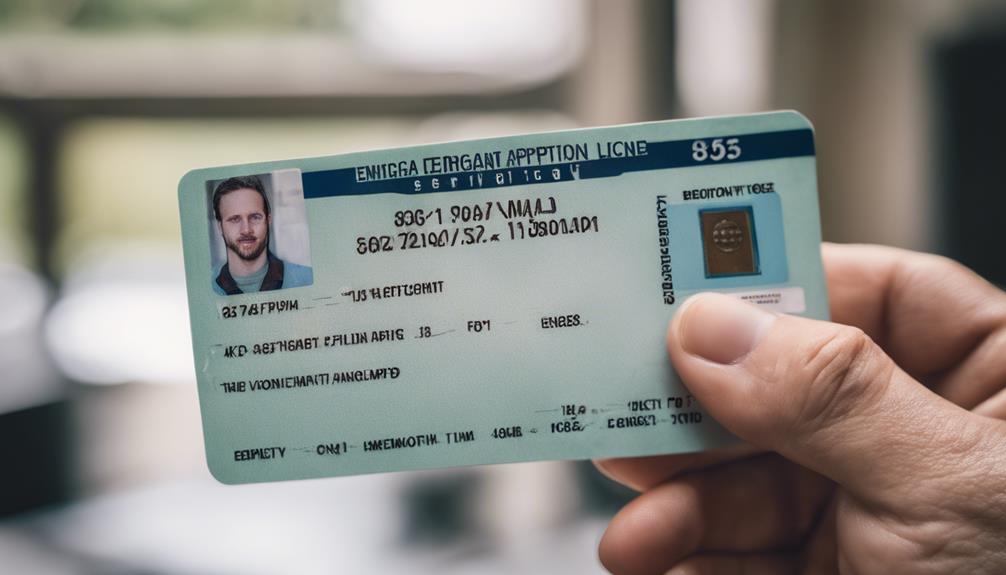Secure approval for Vermont Emergency Medicaid by providing crucial documents like proof of residency, identification, income verification, asset information, Social Security number, citizenship or immigration status, Vermont Medicaid card, medical bills, disability documentation, and emergency situation details. Each document serves a unique purpose, from verifying identity and financial status to demonstrating medical need and disability. Ensuring you have all required documentation can significantly expedite the application process and improve your chances of success. Remember, each document plays a vital role in showcasing your eligibility for Emergency Medicaid assistance in Vermont.
Proof of Vermont Residency
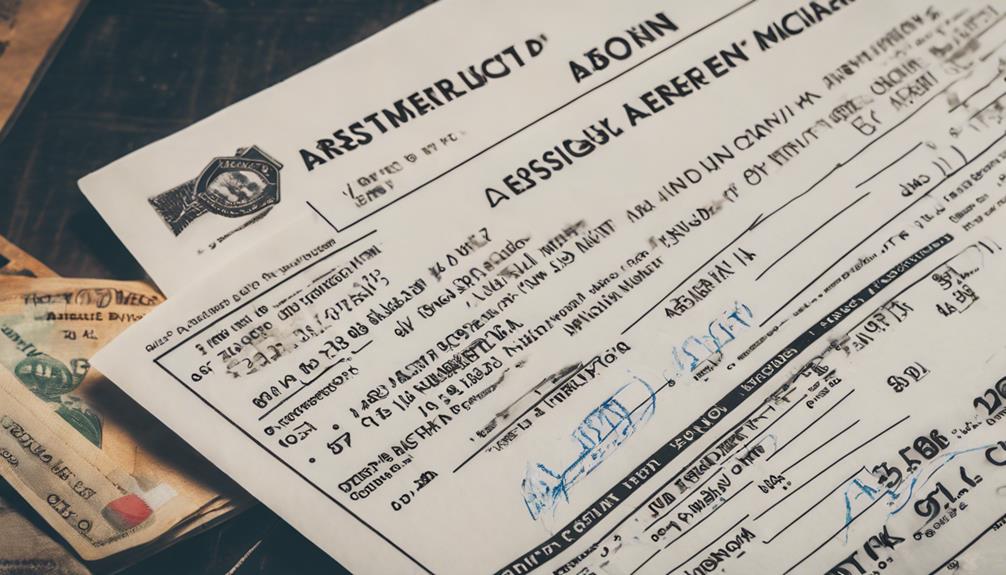
In order to complete the Vermont Emergency Medicaid application, applicants must provide verifiable proof of Vermont residency. Acceptable documents for verifying residency include utility bills and a lease agreement.
Utility bills, such as electricity, water, or heating bills, serve as evidence that the applicant resides at a specific Vermont address. These bills should be recent and display the applicant's name and address.
Additionally, a lease agreement can be submitted as proof of residency. The lease agreement should indicate the applicant's name, the landlord's name, the rental property's address, and the lease term.
It is crucial that these documents are current and accurately reflect the applicant's residency status in Vermont. Providing clear and valid proof of Vermont residency is essential for the successful processing of the Vermont Emergency Medicaid application, ensuring that only eligible residents benefit from the program.
Identification Documents
Verifying one's identity through appropriate documentation is a fundamental requirement for progressing in the Vermont Emergency Medicaid application process. To establish identity, individuals can provide a valid passport for verification purposes. A passport serves as a universally recognized form of identification and can expedite the verification process.
Additionally, a birth certificate is another essential document that can be submitted to confirm identity.
Apart from these primary identification documents, applicants may also need to provide proof of residency in Vermont. Utility bills in the applicant's name or a lease agreement for a Vermont residence can serve as suitable documents for verifying residency.
Utility bills, such as water or electricity bills, show a direct link to the state through regular payments, while a lease agreement demonstrates a legal connection to a Vermont address.
Income Verification
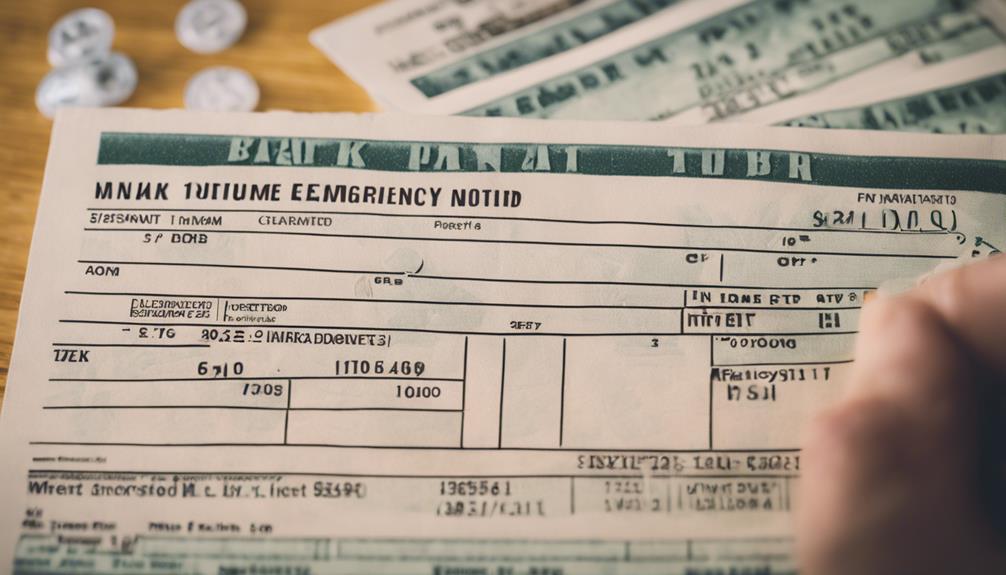
Establishing financial stability through the validation of income sources is a critical aspect of the Vermont Emergency Medicaid application process. Applicants need to provide comprehensive documentation to verify their income eligibility. This includes details on their employment history, tax returns, bank statements, and savings account information.
To confirm income sources, individuals must submit recent pay stubs or a letter from their employer detailing their income. Tax returns from the previous year can also serve as a crucial document to showcase annual earnings.
Additionally, providing bank statements can offer a comprehensive view of the applicant's financial standing, showing regular income deposits and savings. Savings account statements further demonstrate the applicant's ability to cover medical expenses not covered by Medicaid.
Asset Information
A crucial aspect of the Vermont Emergency Medicaid application process involves providing detailed documentation regarding assets owned by the applicant. Asset verification is a key component of determining eligibility for emergency Medicaid assistance in Vermont. To qualify for this program, applicants must meet specific financial criteria, which include limitations on the value of their assets.
When applying for Vermont Emergency Medicaid, individuals are required to disclose all their financial resources, including but not limited to savings accounts, real estate, vehicles, investments, and other valuable possessions. Documentation requirements for asset information typically include bank statements, property deeds, vehicle titles, and any other relevant financial statements that can help verify the applicant's asset value.
To ensure a smooth application process and accurate determination of eligibility, it is essential for applicants to provide thorough and accurate details regarding their assets. Failing to disclose all relevant financial information may result in delays or denial of benefits.
Applicants should carefully review the asset documentation requirements and seek assistance if needed to compile the necessary information effectively.
Social Security Number
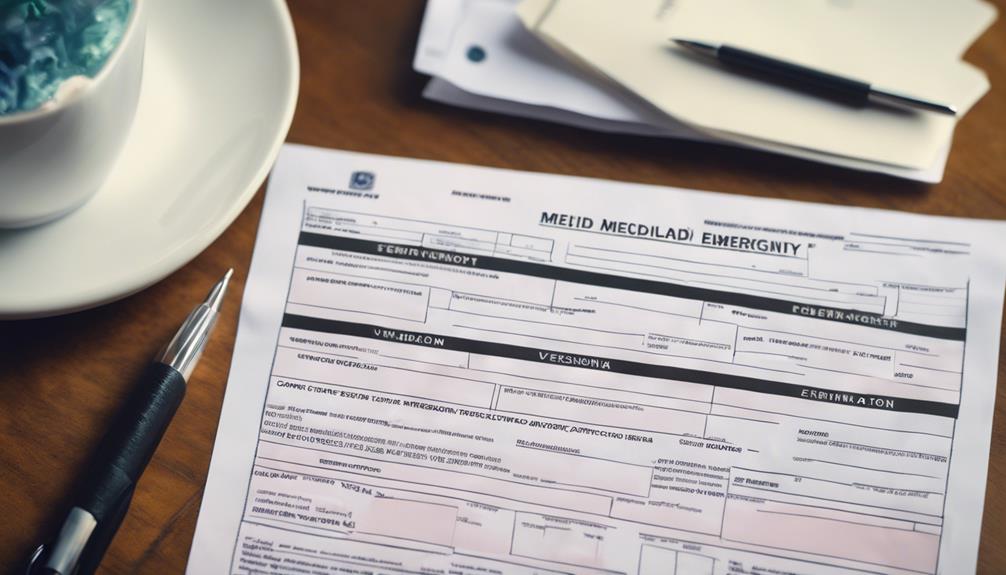
Ensuring accurate identification and verification of applicants is a fundamental requirement in the Vermont Emergency Medicaid application process. The provision of a Social Security Number is mandated, as this unique nine-digit number is assigned to U.S. citizens, permanent residents, and eligible working individuals. Along with other required information such as income details and asset information, the Social Security Number helps establish the applicant's eligibility for emergency Medicaid benefits.
While the Social Security Number is crucial for validating an applicant's identity and facilitating efficient data processing within the Medicaid system, privacy concerns and data protection also come into play. Safeguarding this sensitive information is paramount to prevent identity theft, fraud, and unauthorized access. Vermont's Medicaid program adheres to strict regulations to ensure the confidentiality and security of applicants' data.
Implementing robust data protection measures not only safeguards individuals' privacy but also upholds the integrity of the emergency Medicaid application process.
Citizenship or Immigration Status
Verification of citizenship or immigration status is a critical component of the Vermont Emergency Medicaid application process. To be eligible for Emergency Medicaid in Vermont, applicants must meet specific citizenship or immigration status requirements. Individuals must provide documentation to prove their legal status in the United States.
The verification process involves submitting documents such as a valid U.S. passport, Certificate of Naturalization, Certificate of Citizenship, Permanent Resident Card (Green Card), or other relevant immigration documents.
Eligibility requirements for Emergency Medicaid in Vermont stipulate that applicants must be able to demonstrate their legal presence in the country. The verification process aims to ensure that only eligible individuals receive Medicaid benefits under emergency circumstances.
Providing accurate and up-to-date documentation is crucial for expediting the application process and obtaining timely assistance. By adhering to the legal status requirements and submitting the necessary documentation, applicants can facilitate the verification process and access the healthcare services they urgently need.
Vermont Medicaid Card
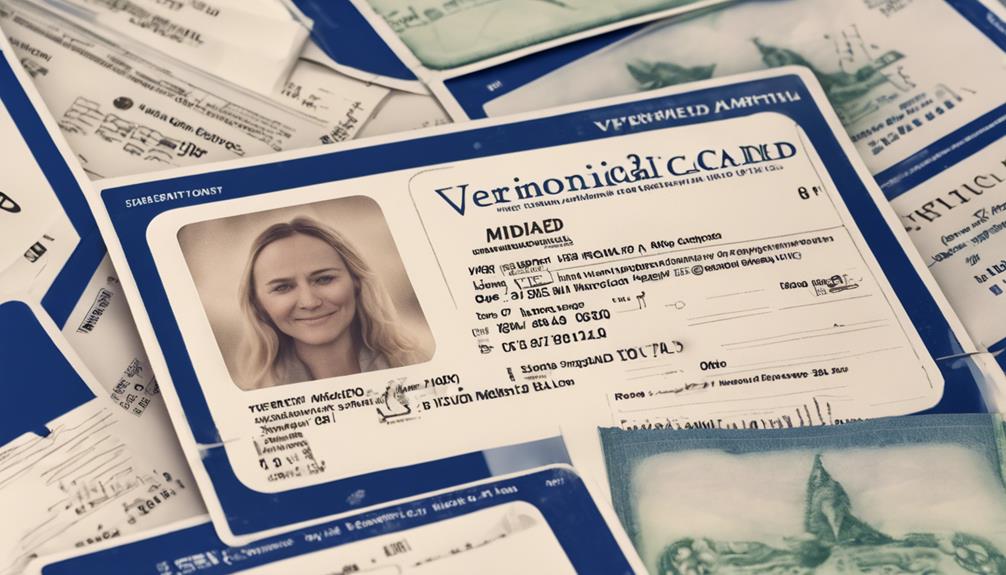
The Vermont Medicaid Card serves as a crucial identification and access tool for individuals enrolled in the state's Medicaid program. To be eligible for Vermont Medicaid, individuals must meet specific income requirements, which vary based on family size and circumstances. Emergency Medicaid benefits are available for those who require immediate medical attention but do not qualify under regular Medicaid criteria.
Having a Vermont Medicaid Card allows beneficiaries to access a range of healthcare services, including doctor visits, hospital care, prescription medications, and preventive care. It is essential for individuals to carry their Medicaid card at all times to ensure smooth and efficient healthcare delivery.
Moreover, the Vermont Medicaid Card streamlines the billing process for medical services, allowing healthcare providers to directly verify coverage and process claims. This not only benefits the Medicaid recipient but also facilitates a more efficient billing system for healthcare providers.
Medical Bills and Expenses
Managing medical bills and expenses can be a complex and challenging aspect of navigating the healthcare system. Individuals facing unforeseen medical emergencies often encounter difficulties in covering the associated costs. Seeking emergency funding or financial assistance becomes crucial to alleviate the burden of medical bills and expenses.
Emergency funding programs may provide relief to individuals struggling to pay for medical treatments. These programs are designed to offer financial assistance to those in urgent need, ensuring access to necessary healthcare services without the overwhelming financial strain. Understanding the options available for emergency funding can significantly aid individuals in managing their medical bills effectively.
Financial assistance programs, such as those offered by hospitals or charitable organizations, can also be valuable resources for individuals grappling with medical expenses. These programs aim to support individuals in need by providing financial aid or facilitating discounted medical services.
Exploring the eligibility criteria and application procedures for financial assistance programs can help individuals access the support they require to address their medical bills and expenses efficiently.
Disability Documentation

Efficient acquisition of disability documentation is crucial for substantiating eligibility for Vermont Emergency Medicaid benefits. When applying for Emergency Medicaid due to a disability, providing thorough medical history is essential. This includes records of diagnoses, treatments, and healthcare providers involved in managing the disability.
Medical history serves as a foundation for understanding the nature and extent of the disability, supporting the need for immediate medical assistance through the Emergency Medicaid program.
Additionally, detailing functional limitations in the disability documentation is imperative. Describing how the disability impacts daily activities, mobility, self-care, and work capabilities helps assess the level of assistance required.
Functional limitations provide insight into the individual's challenges and support the justification for Emergency Medicaid coverage based on the inability to afford necessary medical care independently.
Emergency Situation Details
Detailing the circumstances that qualify as an emergency situation is pivotal in determining eligibility for Vermont Emergency Medicaid benefits. It provides a clear picture of the immediate medical need faced by applicants.
Emergency eligibility for Vermont Emergency Medicaid necessitates a demonstration of a sudden onset of a medical condition that requires immediate medical intervention to prevent serious complications or loss of life.
Applicants must showcase the urgency and severity of their medical situation through detailed documentation such as hospital records, physician's notes, and diagnostic test results. These documents are crucial in substantiating the need for emergency medical assistance and expediting the application process.
Providing a comprehensive overview of the emergency situation, including the date of onset, symptoms experienced, and the recommended course of treatment, enhances the chances of approval for Vermont Emergency Medicaid benefits.
Ensuring that all relevant emergency details are accurately documented is fundamental in supporting the application for expedited medical assistance through Vermont Emergency Medicaid.
Conclusion
In conclusion, the 10 best documents for a Vermont emergency Medicaid application are crucial for providing necessary information and proof to qualify for assistance.
For example, a hypothetical case study of a Vermont resident experiencing a sudden medical emergency without insurance highlights the importance of having these documents readily available to expedite the application process and receive the needed medical care without delay.
By ensuring all required documents are prepared and submitted accurately, individuals can increase their chances of receiving emergency Medicaid assistance in Vermont.
